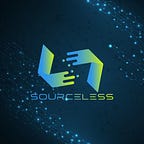Ownership Matters: Reclaiming Property in the Digital Age
Ownership lies at the very foundation of human societies. It shapes our relationships with the world and each other, supporting our personhood and, by extension, our wellbeing. As legal scholar Jeremy Waldron notes, “Property rights are the rights to things that are enforceable against other people. They enable individuals to control their environment and to form plans and projects that give meaning to their lives” (Waldron, The Right to Private Property).
Moreover, ownership is deeply connected with our human need of security and responsibility. It’s a vital component of personal freedom and societal stability, strongly embedded in legal and ethical frameworks.
“You Will Own Nothing and Be Happy…”?
These days, privacy and ownership are under a new form of scrutiny, with the notion that “you will own nothing and be happy” as the poster tagline for a new promised vision (that not many share) of a dubious future. The phrase originates from a WEF video that outlines eight predictions for the world in 2030. This vision includes a shift away from personal ownership towards a model where goods and services are rented or shared. While allegedly intended as a way to highlight the benefits of a sustainable, resource-efficient future, this concept has been met with significant criticism. Many argue that it undermines personal freedom and the intrinsic value of ownership, suggesting a dystopian future where individuals have little control over their possessions and, by extension, their lives.
In The End of Ownership, Aaron Perzanowski and Jason Schultz discuss how digital technology is challenging traditional notions of ownership. They argue that as digital goods replace physical ones, the rights associated with ownership are eroding. For example, when we buy digital media, we often do not truly own it but rather have a license to use it under certain conditions. This shift raises significant concerns about control, access, and permanence.
As Perzanowski and Schultz explain, “The digital age has brought with it a revolution in how we think about ownership. Digital goods blur the line between buying and borrowing, creating a world where consumers have fewer rights and less control over the products they pay for.” (Perzanowski & Schultz, 2016).
Moreover, the book highlights the role of digital rights management (DRM) and licensing agreements in restricting how consumers can use the digital goods they purchase. These mechanisms often undermine the concept of true ownership, as they limit what users can do with their purchases, leading to a sense of reduced control and autonomy over their digital possessions.
The impermanence of digital goods further complicates the notion of ownership. Unlike physical items, digital goods can be revoked or altered by providers at any time. This lack of permanence creates a trust deficit between consumers and digital providers, as users are aware that their access to purchased digital content is not guaranteed.
Sustainability Through Ownership
We think that far from being at odds with a sustainable future, the right to own property is crucial for maintaining social equilibrium, environmental stewardship, and individual empowerment. Ownership encourages people to invest in and maintain their properties, leading to better resource management and long-term sustainability.
Environmental stewardship is one of the key benefits of ownership. When individuals own property, they are more likely to engage in sustainable practices to preserve its value. For instance, a homeowner is more likely to invest in energy-efficient appliances than a renter. Moreover, secure property rights can reduce inequalities and empower marginalized communities by providing them with tangible assets and economic opportunities. Even the World Bank highlights that “property rights are a critical factor in poverty reduction and economic development” (World Bank, 2017).
Challenging the Norm: SourceLess’s Vision
At SourceLess, we believe that the freedom to own and manage digital assets is essential. The idea that “you will own nothing and be happy” does not hold water when viewed through the lens of human experience and legal theory. And ownership in the digital realm is as vital as in the physical world.
SourceLess utilizes blockchain technology to secure digital ownership, ensuring that digital assets are tamper-proof and fully owned by the individual. Blockchain’s decentralized nature ensures that no single entity can alter or revoke ownership. By leveraging decentralized networks, SourceLess provides a platform where users can manage and control their digital assets without relying on centralized authorities. This decentralization aligns with the broader goals of privacy and security.
SourceLess Solutions for Digital Ownership
SourceLess is dedicated to ensuring that the digital realm remains a space where ownership is not just possible but empowered. We support a future where every individual can claim a piece of the digital landscape, ensuring a balance between collective progress and personal rights.
Key Features of SourceLess:
- Digital Identity Management: Secure and verifiable digital identities that give users full control over their online presence.
- Smart Contracts: Automated and enforceable contracts that facilitate secure transactions and ownership transfers. Smart contracts can be used in various scenarios, from real estate transactions to licensing agreements.
- Decentralized Applications (DApps): Applications that run on a decentralized network, providing transparency and security for digital interactions. DApps ensure that user data remains secure and private, even in a decentralized environment.
Wrapping up…
Ownership matters. It is a vital part of human happiness and societal structure, providing security, fostering responsibility, and encouraging innovation. At SourceLess, we are committed to a future that honors our deep-seated need for ownership — both in the physical and digital worlds.
Visit https://t.me/sourceless to learn more about how we are making digital property personal and sustainable.
Sources:
- Perzanowski, A., & Schultz, J. (2016). The End of Ownership: Personal Property in the Digital Economy. MIT Press.
- Waldron, J. (1988). The Right to Private Property. Oxford University Press.
- World Bank. (2017). “Property Rights and Economic Development.” World Bank Report.
- World Economic Forum. (2016). “8 Predictions for the World in 2030.” WEF Video.
